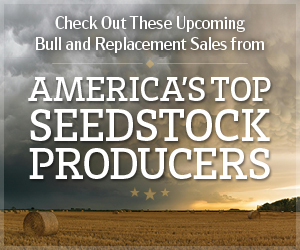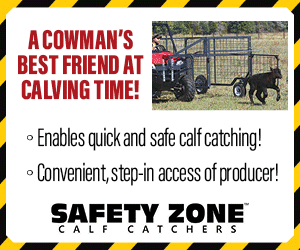By Tim O’Byrne, with Jonathon Berry, Midwest Bio-Systems
Our regular Pasture Management column by the always sterling Loretta Sorensen, found on p. 82 of this issue, is all about utilizing manure, primarily from the feedyard, as a treatment for your land base. We wanted to expose you, dear reader, to the art of composting said material but alas, ran out of room (Loretta’s articulate pieces are like that, they never lack learning punch). So, why not put a standalone up here, we thought? Perfect placement. Read on…
What is compost?
By Jonathon Berry
Compost has incredible potential to help increase a beef producer’s profit margin per acre. Broad-acre application of compost has increased in recent years, but it is still a very misunderstood and underappreciated resource. Farmers and producers need to have a clear understanding of what compost IS and what it is NOT. Many producers have applied what they thought was compost and have experienced minimal or even a negative impact (ie. increased weed germination and disease introduction).
We need to set a higher bar for defining compost and appreciating the benefit of higher quality. Compost is a finished, stable, concentrated material made from a specific decomposition process of organic matter. A true composting process requires a heat cycle, highly aerobic conditions, moisture maintenance, and a balanced C:N ratio (25 to 30 parts Carbon to 1 part Nitrogen). This cycle contains both a deconstruction of organic matter into simplified forms for immediate use in the soil. It also involves an assembly process for beneficial aerobic microbes to create complex carbon compounds and diverse microbial populations.
Compost is unique in that in one substance the soil chemistry, biology, and physical structure can all be improved.
What compost is NOT!
We can make some helpful clarifications from the above definition now as to what it is NOT. Compost is drastically different than raw manure in that it is stable and completed. More importantly, compost has to be understood as different than aged or processed manure in that it has gone through the required cycle, has been granulated and oxygenated, and has achieved a balanced C:N ratio. Compost is also NOT rotted material such as wood chips that have simply turned brown.
Why do we need it?
The process of creating high quality compost can seem complicated and time consuming to a beef producer who already doesn’t have enough hours in the day. No doubt composting is both an art and a science that will take some energy and attention. Our request to beef producers is simply to step back and evaluate their current investment in managing their manure and how they might make some adjustments to achieve a higher ROI. The adjustments that we are asking beef producers to consider are a little more attention to detail on the front end in handling their manure and saving a lot of time, labor, and expense on the back end. Understanding that the composting process will cut your volume of manure in half and then in turn cut your field application rate down to 1/5 of raw manure is worth noting. Also knowing that the heat cycle has eliminated pathogens and weed seeds in your manure means friendlier conditions in the field, and a friendlier relationship with your EPA inspector!
The simple summary is that beef producers have the ability to create a soil amendment that can improve all 3 aspects of the soil in the chemistry, biology, and physical structure with their manure. It gives the beef producer the opportunity to add an additional revenue stream, significantly reduce fertilizer costs, and become more resilient to fluctuations both in the markets and the weather. We encourage more beef producers to get into the composting game to ensure a more stable and profitable future for their families and at the same time improving the quality of safety of our soils.
Tim here: WR is all about exploring new, different and/or better ways to utilize our precious God-given resources to the best of our ability. Composting makes a lot of sense to me, and I understand not everyone is in a position to embrace it on this level. My job is to make sure you are, at the very least, exposed to these options. WR sdprio




